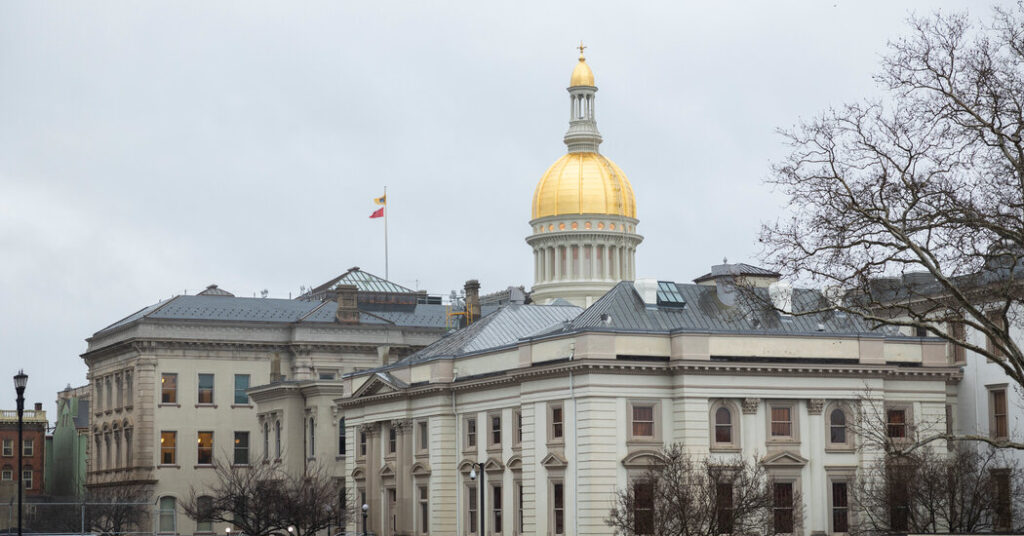Less than a year ago, New Jersey Governor Philip D. Murphy signed a bill that weakened the powers of a watchdog agency created to police election campaigns. Now, lawmakers are working to limit another good government effort: public records laws designed to promote government transparency and curb corruption.
Mr. Murphy, a Democrat, has not addressed the proposal publicly, and his spokesperson declined to comment on whether he would sign the bill if it reached his desk. But it comes at a critical juncture in his second term, and his wife, Tammy Murphy, is running for the U.S. Senate and counting on the support of some of the same Democrats pushing the bill. There is.
The Public Records Act, known as the Public Records Act, was adopted 21 years ago as the explosion of digital communications has increased the amount of information covered by the Act, and people trying to obtain the data have. This was long before the scope of .
For-profit companies currently rely on government records laws to obtain data that is central to their business models, sometimes at a cost to taxpayer-funded government agencies. Partisan movements are spreading across the country.
States such as Arkansas, Colorado and Kentucky are considering restricting access to records, while California is moving in the opposite direction and activists hope to win more disclosures in November. Asking for a poll question.
If signed by Murphy, New Jersey's bill would be the most significant change to public records laws yet. Two legislative committees advanced the bill on Monday, and at least one more hearing is scheduled before it is considered by the full House. The final vote could take place as early as March 18th.
The bill would affect access to many types of information, including real estate transactions, dog licenses and court proceedings. Currently, information that must be provided immediately upon request, such as government contracts or pay stubs, may be delayed if the material is more than a year old for him. Currently available home addresses, email addresses, phone numbers, and other identifying information will be redacted or hidden. And a wide range of people, including representatives of the estimated $300 billion data broker industry that bundles and sells records, will get nothing.
Efforts to narrow access to public records have put city and county officials at odds with government transparency advocates.
Supporters say the bill would reduce burden on government agencies and protect citizens' personal information in an era of identity theft and other high-tech crimes.
The effort is backed by some of the most powerful forces in the state Legislature, including local government lobbying groups that say city hall officials are unable to keep up with the surge in requests for records.
In recent years, for example, some government agencies have been inundated with requests for video and audio files of arrests and other interactions with law enforcement, said Lori Bucklew, deputy executive director of the New Jersey League of Municipalities. It is said that there is
“An hour of body camera footage takes three hours to edit,” Bucklew said by phone.
John Donadio, executive director of the New Jersey Association of Counties, said commercial requests for government records are particularly burdensome. “Some counties receive 3,000 or 4,000 public records requests a year,” he said.
Some of the best-known companies that collect data from government records offer subscription access to lawyers, researchers, and academics. Other companies provide contact information for former classmates or potential love interests.
Critics of the bill, including the New Jersey Press Association, a newspaper industry lobbying group, call it an attack on democracy. They argue that restricting access to government records opens the door to further corruption in a state plagued by political scandals.
“We live in a time of great distrust of government and public institutions,” Amol Sinha, executive director of the New Jersey chapter of the American Civil Liberties Union, said in a telephone interview. “The worst thing we can do is limit government accountability and restrict access to records.”
The League of Women Voters of New Jersey called the bill an “anti-transparency bill” in a social media post and said more than 700 people had participated in an email protest.
On Sunday, first lady Ms. Murphy voiced her opposition to the bill, which she characterized as an effort to “water down” the state's open records law. “The public and the press must be able to ask questions and get answers,” she said on social media. Her main opponent in the Democratic Senate primary, Rep. Andy Kim, also voiced her concerns about the proposal.
The bill is moving at an unusually fast pace and could be sent to the governor for consideration in just two weeks.
“We had a very good democratic hearing,” Sen. Paul Sarlo, the bill's lead sponsor, told reporters after the vote in the Senate Budget Committee, which he chairs.
In the coming weeks, Mr. Murphy will need Sen. Sarlo's support on key initiatives. One is the reauthorization of the Transportation Trust Fund for rail and highway projects, which relies on a nearly 10-cent-per-gallon gas tax increase and electric vehicle fees. The other is a $55.9 billion state spending plan that calls for an 11.5% tax on the most profitable businesses to help fund public transportation and $2.3 billion in residential property tax relief. ing.


